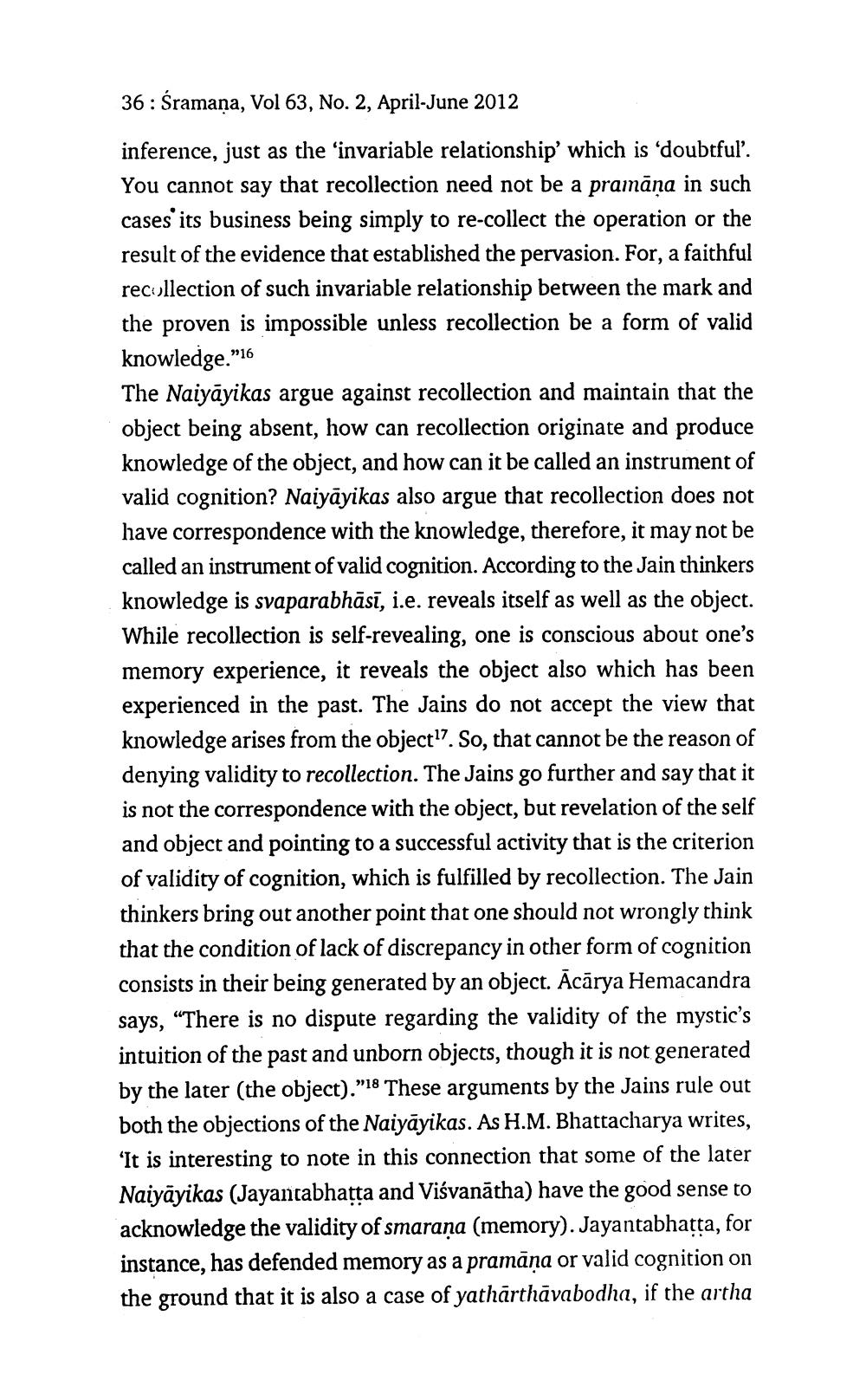________________
36: Śramaņa, Vol 63, No. 2, April-June 2012 inference, just as the 'invariable relationship’ which is doubtful. You cannot say that recollection need not be a pramāṇa in such cases its business being simply to re-collect the operation or the result of the evidence that established the pervasion. For, a faithful recollection of such invariable relationship between the mark and the proven is impossible unless recollection be a form of valid knowledge."16 The Naiyāyikas argue against recollection and maintain that the object being absent, how can recollection originate and produce knowledge of the object, and how can it be called an instrument of valid cognition? Naiyāyikas also argue that recollection does not have correspondence with the knowledge, therefore, it may not be called an instrument of valid cognition. According to the Jain thinkers knowledge is svaparabhāsī, i.e. reveals itself as well as the object. While recollection is self-revealing, one is conscious about one's memory experience, it reveals the object also which has been experienced in the past. The Jains do not accept the view that knowledge arises from the object??. So, that cannot be the reason of denying validity to recollection. The Jains go further and say that it is not the correspondence with the object, but revelation of the self and object and pointing to a successful activity that is the criterion of validity of cognition, which is fulfilled by recollection. The Jain thinkers bring out another point that one should not wrongly think that the condition of lack of discrepancy in other form of cognition consists in their being generated by an object. Ācārya Hemacandra says, “There is no dispute regarding the validity of the mystic's intuition of the past and unborn objects, though it is not generated by the later (the object)."18 These arguments by the Jains rule out both the objections of the Naiyāyikas. As H.M. Bhattacharya writes, 'It is interesting to note in this connection that some of the later Naiyāyikas (Jayantabhatta and Viśvanātha) have the good sense to acknowledge the validity of smaraña (memory). Jayantabhatta, for instance, has defended memory as a pramāņa or valid cognition on the ground that it is also a case of yathārthāvabodha, if the artha




